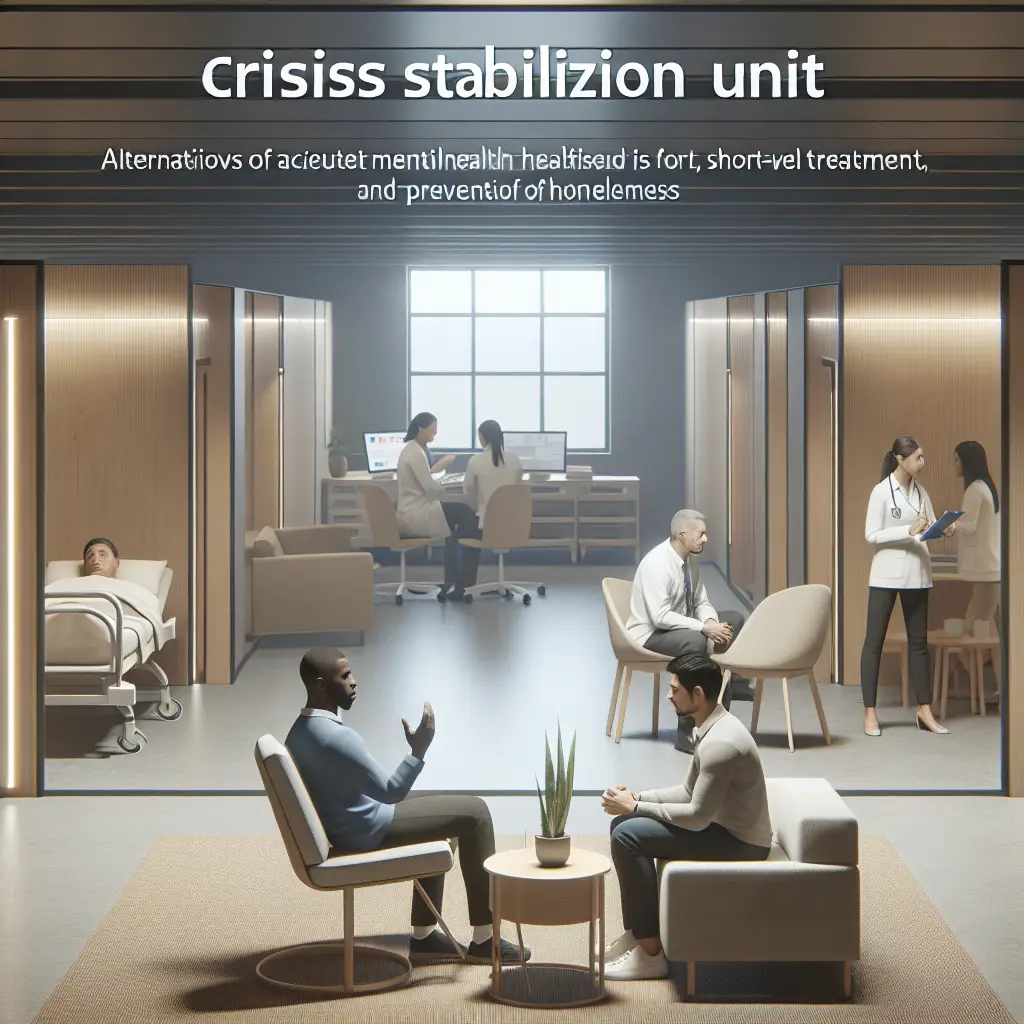Crisis Stabilization Units
Description
A Deep Dive into Crisis Stabilization Units
Definition
Crisis Stabilization Units (CSU) are facilities designed to offer short-term, intensive treatment for those individuals who are experiencing a mental health crisis. These units provide an alternative to traditional hospitalization which can be expensive and disruptive. Additionally, CSUs potentially prevent homelessness among those individuals with acute mental health needs.
Description
Crisis Stabilization Units are a key component in the mental health care system. They provide a safe space for individuals experiencing intense emotional or psychiatric distress by offering immediate, 24-hour access to care. Usually operating separately from hospitals, CSUs primarily target individuals facing acute mental health issues as well as those at risk of homelessness due to their mental health condition. These facilities work to stabilize the condition of the client, with the ultimate aim of reintegrating them back into society as quickly as is appropriate.
Objectives
- To provide immediate and short-term psychiatric care.
- To reduce the necessity for hospitalization.
- To prevent the risk of homelessness among affected individuals.
- To facilitate faster reintegration into society.
Mechanisms
- 24/7 availability of care.
- Comprehensive assessment of the individual's mental health needs.
- Individualized treatment planning.
- Immediate crisis intervention.
- Provision of short-term residential stability.
Benefits
- Immediate response to mental health crises.
- Reduces the need for more costly or disruptive interventions like hospitalization.
- Prevents homelessness by offering residential stability.
- Provides a less intimidating and stigma-free environment than hospitals.
- Facilitates speedy reintegration into the community.
Challenges
- Limited awareness of CSUs among the general public.
- May not be sufficient for individuals with severe, long-term mental health needs.
- Financial constraints may limit the reach and scale of these units.
- Need for well-trained specialized mental health professionals.
Examples
- The Florida Department of Children and Families has multiple CSUs that offer rapid stabilization for individuals having a mental health crisis.
- Santa Cruz County in California operates a CSU to provide 24/7 emergency mental health care and residential services.



